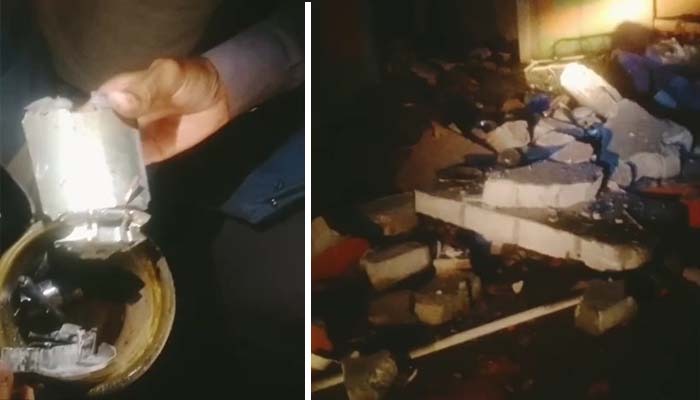Tensions between Pakistan and India have sharply escalated following deadly cross-border attacks and military retaliation. On Wednesday morning, Pakistan armed forces shot down five Indian Air Force (IAF) jets, including three Rafale fighters, one Su-30MKI, and a MIG-29 Fulcrum. A drone and an Indian brigade headquarters were also destroyed during Pakistan’s retaliatory response.
According to Director-General Inter-Services Public Relations (ISPR), Lt Gen Ahmed Sharif Chaudhry, all Pakistan Air Force jets returned safely after intercepting and engaging enemy aircraft. He confirmed the armed forces responded with full strength to defend Pakistan’s sovereignty.
In a statement to Reuters, a military spokesperson verified that the targeted IAF jets were modern French and Russian-made aircraft. The strikes were precise and calculated, aimed at deterring further hostilities amid growing India-Pakistan tensions.
The retaliation came after Indian forces launched a series of missile strikes on civilian areas in Pakistan, including the cities of Kotli, Bahawalpur, Muridke, Bagh, and Muzaffarabad. These attacks killed eight Pakistani civilians and injured 35 others. Most of the sites targeted were mosques and residential buildings. Loud explosions were heard across Azad Kashmir, causing blackouts and fear among the population.
Lt Gen Chaudhry condemned the Indian actions as cowardly and shameful. He said the Indian Air Force launched 24 attacks from within Indian airspace, avoiding direct engagement with Pakistan’s defenses. “This provocation will not go unanswered,” he stated. “Pakistan will respond at a time and place of its choosing.”
As fighting continued along the Line of Control (LoC), Pakistan forces destroyed an Indian check post in the Dhundial sector and shot down another drone. An intense exchange of fire was still underway with Indian Army positions at the time of reporting.
A summary of the escalation includes:
-
India struck six Pakistani sites including Bahawalpur and Muzaffarabad.
-
ISPR confirmed 8 civilian deaths and 35 injuries.
-
Pakistan downed 5 IAF jets and 1 drone.
-
Indian brigade HQ and a military post destroyed by Pakistan.
-
Prime Minister Shehbaz Sharif called an urgent National Security Committee meeting.
Defence Minister Khawaja Asif told media that Pakistan had gained the upper hand with swift and decisive strikes. He praised the armed forces for their professionalism and commitment to defend the country against Indian aggression. “This response was necessary to protect our people and our land,” he added.
Deputy Prime Minister and Foreign Minister Ishaq Dar strongly condemned India’s military assault. He said the IAF had targeted civilians with stand-off weapons from a distance, choosing soft targets while staying within Indian airspace. He described it as a blatant act of war.
In response, Islamabad officially notified the United Nations Security Council (UNSC) about the situation. The communication condemned India’s “unprovoked aggression” and warned of the consequences of provoking two nuclear-armed nations. Pakistan reaffirmed its right to defend itself under Article 51 of the UN Charter.
The Foreign Office described India’s actions as a severe violation of international law and the UN Charter. “Women and children were among the victims,” said FO Spokesperson Shafqat Ali Khan. He said India’s reckless actions have threatened civil aviation and endangered regional stability.
The root of this India-Pakistan conflict traces back to an attack on Indian tourists in Pahalgam, in Indian Illegally Occupied Jammu and Kashmir (IIOJK), where 26 people were killed. India blamed Pakistan without presenting evidence. It also revoked Pakistani visas, suspended the Indus Waters Treaty, and closed the Wagah-Attari border crossing.
Pakistan responded by expelling Indian diplomats, cancelling all Indian visas except those for Sikh pilgrims, and sealing the border from its side. Islamabad denied involvement in the Pahalgam incident and called for an impartial investigation.
Security sources in Pakistan emphasized that only civilians were targeted by India and that every life lost would be avenged. “We will respond appropriately. Our resolve is ironclad,” they said.
Meanwhile, US Secretary of State Marco Rubio urged both nations to avoid escalation. He contacted national security advisors from both sides and encouraged continued communication.
Despite these diplomatic efforts, India-Pakistan tensions remain at a boiling point. Pakistan has made clear it will not let Indian aggression go unanswered. The military has vowed to protect the nation’s sovereignty with full resolve and strength.


